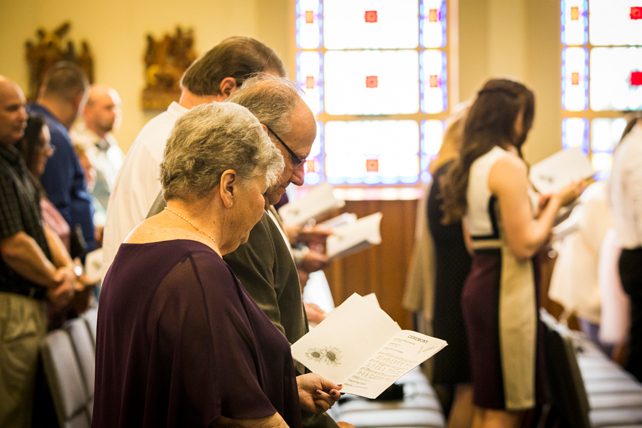Have you noticed yet that parenting a boy is very different than parenting a girl? Turns out that they’re wired differently, from birth. And one of the ways they are different is in the way they communicate.
From birth, both boys and girls like to grunt and gurgle. The difference is that girls prefer people to interact with while boys are equally happy to chatter away at abstract geometric designs. The male brain is wired for activity while the female brain is biased toward a relationship. One study involving 2- to 4-day-old babies showed that baby boys spent 50 percent less time holding eye contact with an adult than baby girls. She is wired for relationship. It’s not that he can’t do relationship, but he engages relationship in a different way.
In her book You Just Don’t Understand, Deborah Tannen labels the differences in communications styles of females and males as “rapport” talk and “report” talk. According to Tannen, females use conversation to maintain intimacy, develop rapport and increase connection. Males, on the other hand, talk to establish independence, build status and deliver data.
This shows up on nonverbal communication as well. When females talk to each other, they generally stand close together, maintain eye contact and gesture frequently. Males typically keep a greater distance, avoid eye contact and gesture much less often. The differences go on and on.
So, as parents, let’s consider these differences as we think about ways to engage and communicate with our children. Here are some ideas to think about on how to communicate in way that engages boys and girls best.
FOR BOYS
1. TALK TO HIM AROUND A TASK.
Build Legos, stack blocks, craft objects from wood, shoot hoops, play catch or walk the family dog. Boys have some of their best conversations side by side rather than face to face. Eye contact can actually feel threatening to boys and we end up with less access to them rather than more.
2. TAKE ADVANTAGE OF BEDTIME.
The window between winding down and sleep is an advantageous window to get access to a boy. His emotional defenses are down and we can have some of our best conversations with him while rubbing his head, scratching his back or just laying next to him in the dark. Again, we are able to avoid eye contact in a way that often feels safe to him.
3. LEARN TO READ BETWEEN THE LINES.
Boys take a certain amount of decoding. Throughout his development, he will question his abilities, his ranking in the pecking order of the boy world, his identity and his purpose. We want to watch for moments where we see evidence of his questioning or doubting himself in his behavior. By 9-10 his brain will instinctively begin to channel all primary emotions (sadness, fear, disappointment) into one emotion—anger. When he melts down and starts hitting or throwing objects over losing a game, missing an important goal or not being invited to a birthday party, we’ll have to help him put words to his experience so he learns to better articulate himself.
FOR GIRLS
Girls, on the other hand, articulate themselves quite well—from an early age. The hippocampus, which is the region of the brain related to memory function, is much more developed in your school-age daughter than her brother of the same age. Therefore, your 3rd grader will get in the car after school and download to you every detail of her day: from what the teacher was wearing, to every time she called on her, to who played with whom at recess, and who was left out of it all.
Much of her memory and her communication will be emotionally based. From the earliest stages of her development, your daughter is an extremely intuitive and passionate little creature. Every bit of her relationship with you and those around her will reflect the depth of feeling she experiences.
1. HELP HER FOCUS.
Because of the complexity of her memory and emotions, a girl will often need help getting to the heart of what she’s trying to say. She begins with one story about one friend and, 30 minutes later, is talking about that friend’s cousin’s friend’s dog, who is sick. Summarizing is a very important skill in the life of a girl, and one that you have a unique voice in helping her develop. Over the years, she will have countless boys in her class tell her to “Stop talking” or even more bluntly, “Shut up.” She’ll have girls who’ll tell her what she’s saying is stupid. Those children will not, in any way, be acting out of her best interest. But you are. She knows that you love and are for her. It helps to remind her of that often. And, as you do, you can give her guidelines in her story-telling. “I’m a little lost in the details. Can you summarize that for me?” is a gracious way to help her focus, although she’ll need a lesson on what summarizing means in the beginning. Then, at the end of the conversation, you can add your own version of a summary, “So, when Ryan was pushed out of the swing today at school, everyone laughed and it made you sad.” As you repeat this process for her in different ways over time, she’ll come to understand that all of the details aren’t necessarily…necessary.
2. DIAL DOWN THE DRAMA.
To even understand what she’s saying to you, she will often need to dial down the drama. She will regularly use phrases like, “She’s the meanest girl in the whole school!” or “I have never been as mad in my entire life!” Everything will end with an exclamation mark. In these moments, her descriptions often have more to do with drama than what she really is feeling. Anger can hide hurt feelings and genuine sadness lurking underneath. Clarifying questions like, “Tell me what happened?” and “What did you do next?” can help her start with the facts of the situation. Then, she can talk about her feelings in a way that you are able to hear her heart and offer the support she needs, without the distracting drama.
3. LISTEN FOR WAYS TO AFFIRM HER.
Girls are profoundly hard on themselves. In our counseling offices, we hear stories of girls as young as pre-schoolers who call themselves fat or stupid. And, as adolescence looms, those feelings of insecurity just get stronger. Again, as a parent, you have a voice in your daughter’s (or son’s) life like no one else. She needs you to affirm her. She needs you to call out the good and the strengths that you see in her. As she gets older, tell her the ways you admire her.
Your son and daughter communicate differently. But, as you learn to listen through the grunt and the gurgle, you will hear not only what they say, but the truth of who they are. That kind of listening is a gift, and one that will strengthen your relationship for a lifetime.
i Moir, Anne and Jessel, David.
Brain Sex: The real difference between men and women
Dell Publishing, New York, 1992.
SISSY GOFF, M.Ed., LPC-MHSP, spends most of her days talking with girls and their families as the Director of Child and Adolescent Counseling at Daystar Counseling Ministries in Nashville, Tennessee. A sought-after speaker, Sissy is the author of a video curriculum called Raising Boys and Girls, as well as six books including Intentional Parenting; The Back Door to Your Teen’s Heart; Raising Girls, and Modern Parents, Vintage Values. Sissy is also a frequent guest and contributor to media shows and publications such as Moody Midday Connection, the Chat with Priscilla Shirer, as well as Today’s Christian Woman and Parenting Teens magazines. You can find her at RaisingBoysAndGirls.com.
DAVID THOMAS, LMSW, is a family therapist, the co-author of seven books, including the best-selling Wild Things: The Art of Nurturing Boys, a frequent guest on national television and radio, a regular contributor to ParentLife magazine, and speaks across the country. His video curriculum, Raising Boys and Girls: The Art of Understanding the Differences, is currently available, as is his newest book, Are My Kids on Track? The 12 Emotional, Social and Spiritual Milestones Your Child Needs to Reach. You can find him blogging about all things related to kids at raisingboysandgirls.com. He and his wife, Connie, have a daughter, and three Wild Things (twin sons and a feisty yellow lab named Owen).
This article originally appeared here.











